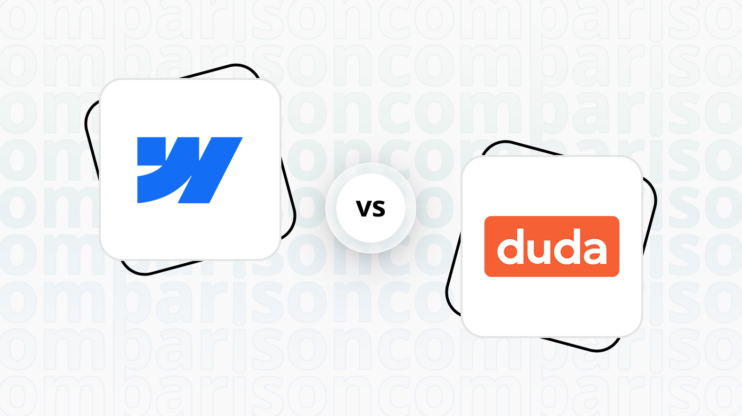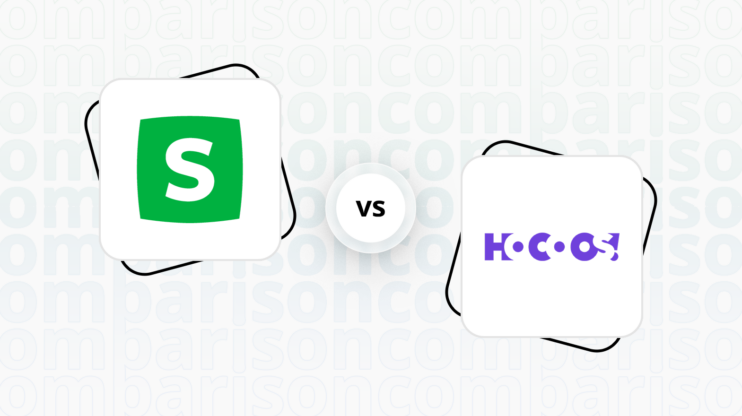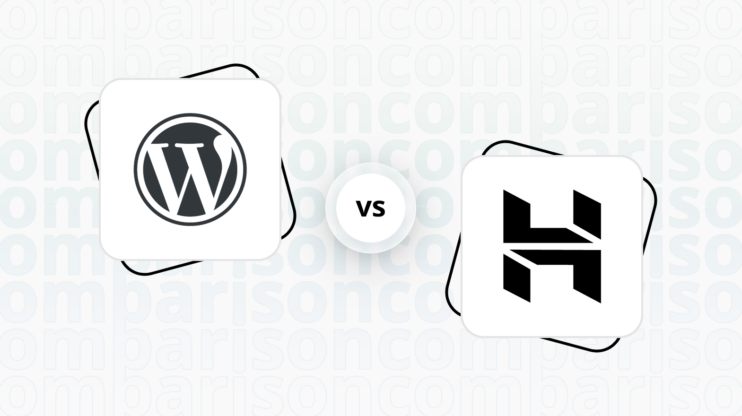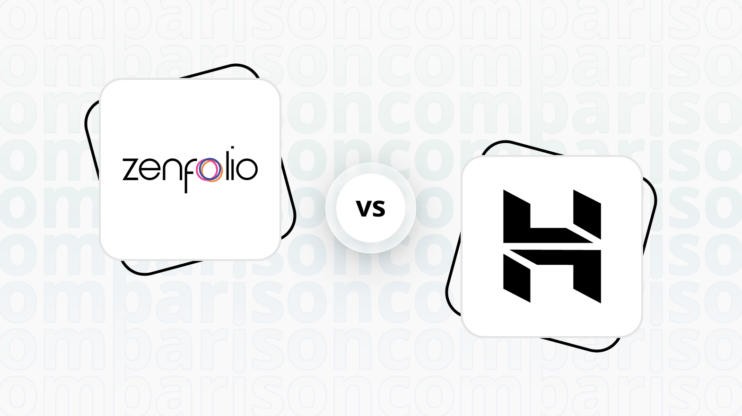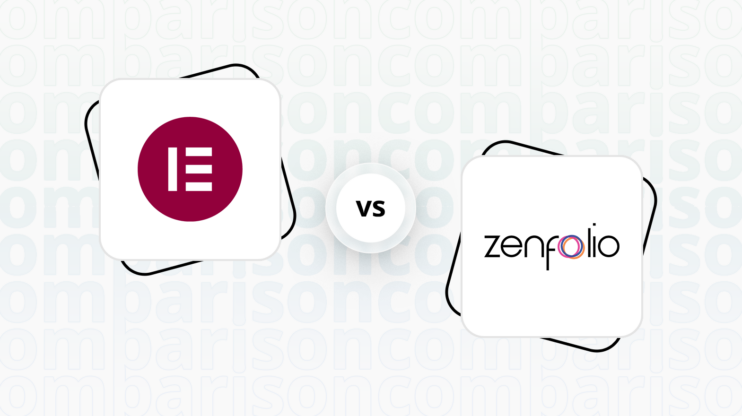Final verdict
Shopify and BlueHost both offer valuable tools for building and managing websites, but they cater to different needs and audiences.
-
Shopify (Overall Grade: 8.1/10)
is a robust ecommerce platform designed for businesses looking to create and manage online stores. It excels in providing advanced ecommerce features, strong security, and comprehensive customer support. When comparing Shopify vs BlueHost, Shopify is the preferred choice for users who prioritize ecommerce functionalities and scalability. -
BlueHost (Overall Grade: 6.8/10)
is a versatile web hosting service that includes a user-friendly website builder. It integrates seamlessly with WordPress, offering a wide range of customization options and access to numerous themes and plugins. Considering Shopify vs BlueHost, BlueHost is ideal for users seeking a more general-purpose website builder with strong hosting capabilities, especially those familiar with WordPress.

|

|
|
|---|---|---|
|
Design functionalities & templates |
8.2 |
7.2 |
|
Ease of use |
7.5 |
8.2 |
|
Ecommerce |
9.2 |
6.8 |
|
Website Editors |
7.9 |
7.3 |
|
Product testing options |
8.1 |
6.2 |
|
Price |
8.2 |
7.2 |
|
Hosting quality |
9.0 |
8.0 |
|
Website speed optimization |
7.8 |
6.5 |
|
Plugins and integrations |
8.7 |
9.1 |
|
Marketing features |
8.8 |
7.3 |
|
Customer support |
8.6 |
7.6 |
|
Security |
9.0 |
8.3 |
|
AI capabilities |
7.9 |
1.5 |
|
User Management |
6.5 |
4.4 |
Best for ecommerce
 9.2
9.2
 6.8
6.8
Verdict
: Shopify is the superior choice for ecommerce, offering a robust and flexible platform with extensive features, while BlueHost is a viable option for those familiar with WordPress and WooCommerce, seeking a more budget-friendly solution.
-
Shopify
: With a score of 9.2, Shopify excels in ecommerce with its comprehensive store builder, advanced inventory management, and multi-channel selling capabilities. It supports a wide range of payment gateways, including Shopify Payments, and offers detailed analytics and reporting. Shopify’s extensive library of apps and unique features like Augmented Reality make it ideal for businesses looking to scale and enhance their online presence. -
BlueHost
: Scoring 6.8, BlueHost integrates seamlessly with WooCommerce for WordPress sites, providing essential ecommerce features like product listings, shopping carts, and secure payment gateways. While it lacks the advanced capabilities and extensive app ecosystem of Shopify, BlueHost is a versatile option for users familiar with WordPress, offering robust customization features and a variety of hosting plans to cater to different needs.
Best for informational & business websites
 6.8
6.8
 7.5
7.5
Verdict
: BlueHost is the better choice for informational and business websites due to its higher score and user-friendly features, while Shopify is more tailored for ecommerce needs.
-
Shopify
: Shopify, scoring 6.8, is primarily an ecommerce platform. While it can be used for informational sites, its features are more geared towards online stores. The platform offers professional templates and robust tools for managing products and orders, but it may feel overly complex for simple informational websites. -
BlueHost
: BlueHost, with a score of 7.5, excels in creating professional-looking informational websites. Its integration with WordPress provides access to thousands of themes and plugins, making it highly customizable. The drag-and-drop interface is user-friendly, catering to users with little to no coding experience. When comparing Shopify vs BlueHost, BlueHost stands out for its versatility and ease of use for informational and business websites.
Detailed comparison
Design functionalities & templates
Design FunctionalitiesRepresents how well each platform allows for creative design and customization of websites.Score Components:
- Template Variety (30%): Range and quality of design templates.
- Customization (30%): Flexibility and options for design alterations.
- User Interface (20%): Ease and intuitiveness of the design process.
- Responsiveness (10%): Adaptability to different devices and screen sizes.
- Innovation (10%): Unique design features and tools.
 8.2
8.2
 7.2
7.2
🏆
Winner: Shopify.
If you’re looking for a platform that offers more professional and ecommerce-focused design functionalities and templates, Shopify is the preferred choice.
Shopify’s templates are sleek and professional, ideal for ecommerce sites. They offer a sophisticated look with a focus on online stores. While the free template selection is not large, Shopify’s premium theme store provides a variety of industry-specific options, offering advanced features for a strong brand presence.
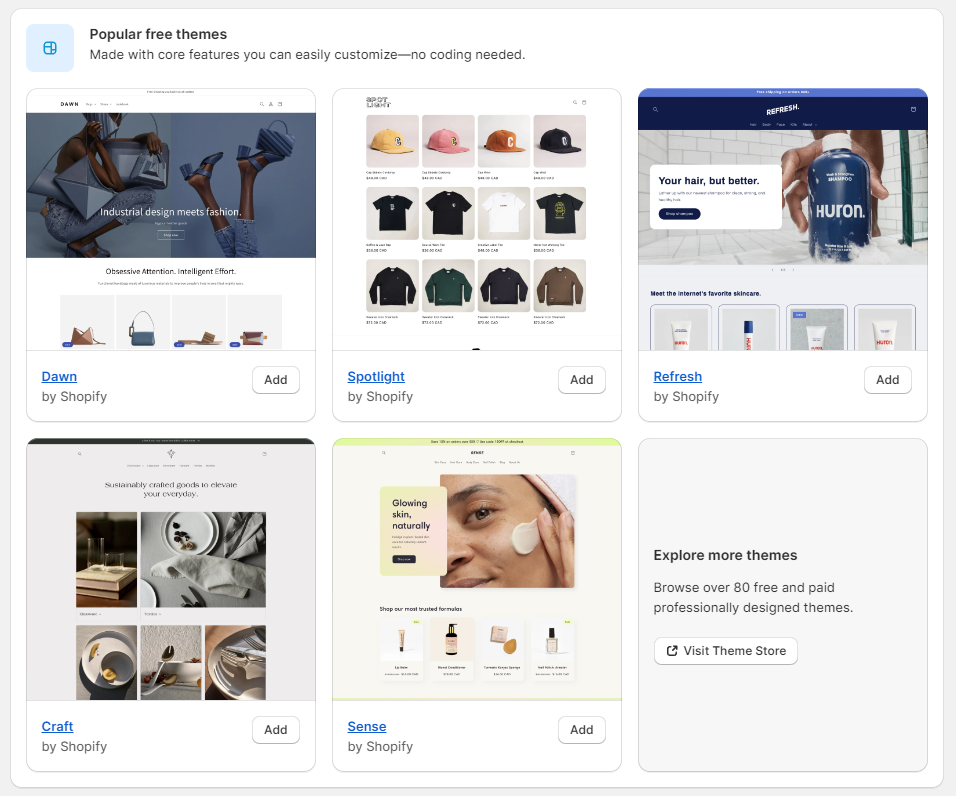

Compared to Shopify, BlueHost’s WordPress website builder offers over 300 pre-installed templates and designs to cater to the diverse needs of its users, ensuring that there’s something for everyone, regardless of the niche or industry. With hundreds of customizable templates available, users can easily find a design that aligns with their vision and brand identity. These templates are designed to be responsive and SEO-friendly, enhancing the user experience and visibility of the websites. From simple blog layouts to complex ecommerce designs, BlueHost provides a comprehensive selection to help users create professional-looking websites with ease.
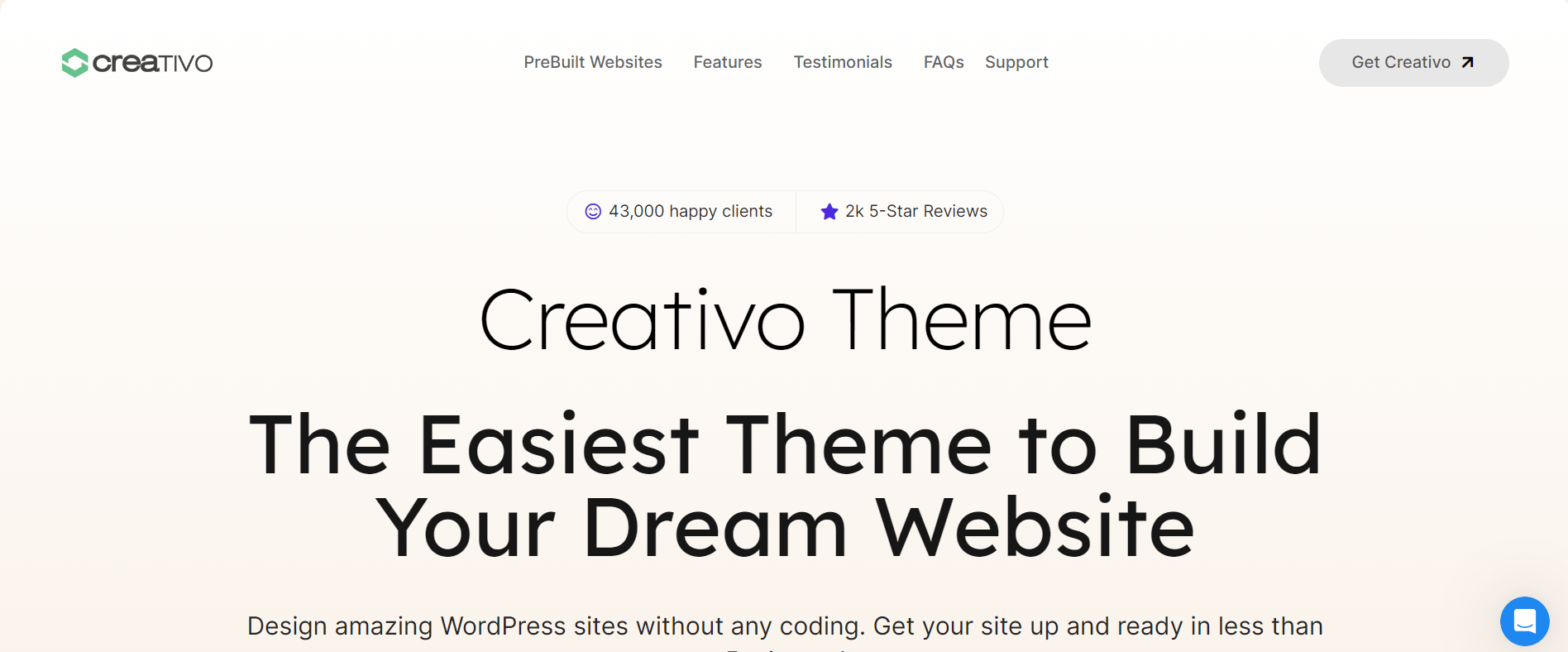
Get a head start on website creation with AI
Create a custom website tailored to your business needs 10X faster with 10Web AI Website Builder!
Ease of use
Ease of useReflects the platform’s overall user-friendliness.Score
Components:
- Learning curve (40%): Quickness and ease of getting started.
- Interface design (30%): Simplicity and intuitiveness of layout.
- User guidance (20%): Quality of tutorials and support.
- Flexibility (10%): Adaptability to various user skills.
 7.5
7.5
 8.2
8.2
🏆 Winner: BlueHost
. With a score of 8.2, BlueHost’s website builder is designed with simplicity in mind, making it highly accessible for users of all skill levels. Shopify, scoring 7.5, offers a robust platform but with a steeper learning curve, especially for those new to ecommerce. If ease of use is a priority, BlueHost is the clear winner in this category.
Learning Resources
🏆 Winner: Shopify
. While both platforms offer solid learning resources, Shopify goes a step further with its wide array of detailed tutorials and active community forums, making it easier for users to learn and adapt.
For ecommerce
EcommerceMeasures the platform’s effectiveness in supporting online business activities.Score Components:
- Ecommerce themes and templates (20%): Variety and design of templates.
- Product management (25%): Ease of managing and organizing products.
- Payment options (25%): Variety and convenience of payment methods.
- Ecommerce features (20%): Features for managing an ecommerce store.
- Integration (10%): Compatibility with external e-commerce tools and services.
 9.2
9.2
 6.8
6.8
Shopify, with a score of 9.2, is a leading ecommerce platform that provides a comprehensive set of features for online businesses. It offers tools for creating and customizing online stores, managing products, processing payments, and handling order fulfillment. On the other hand, BlueHost, scoring 6.8, is a comprehensive web hosting service that also offers a user-friendly website builder with ecommerce features. These features include integration with WooCommerce for WordPress sites, allowing for the easy setup of product listings, shopping carts, and secure payment gateways.

|

|
|
|---|---|---|
|
Ecommerce themes and templates |
8.2 |
6.5 |
|
Product page customization |
8.5 |
7.0 |
|
Payment processing and commissions |
8.8 |
6.8 |
|
POS capabilities |
8.1 |
0.0 |
|
Payment gateways |
9.5 |
7.5 |
|
Product numbers |
9.0 |
6.0 |
|
Additional ecommerce features |
9.1 |
6.5 |
Shopify ecommerce features:
- Comprehensive store builder
- Shopify Payments and other gateways
- Advanced inventory management
- Multi-channel selling
- Abandoned cart recovery
- Detailed analytics and reporting
BlueHost ecommerce features:
- Product Listings
- Shopping Carts
- Secure Payment gateways
- Shipping Options and Tax Calculations
- Inventory Management
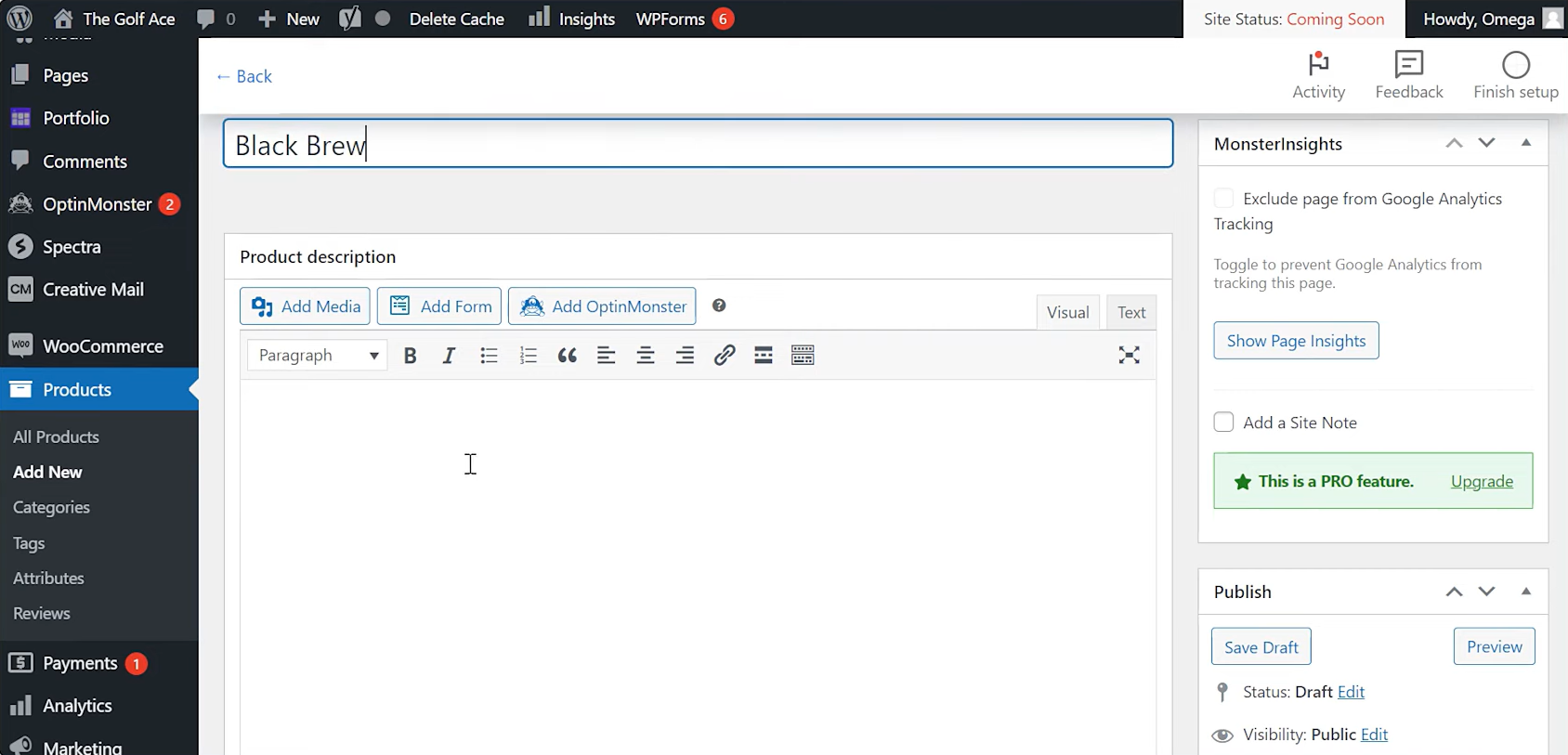
Ecommerce themes & templates
Shopify offers about 150 modern responsive themes for creating a virtual storefront, ensuring a good look on both desktop and mobile devices. While some themes are free, others cost between $170 to $380. In contrast, BlueHost’s website builder for eCommerce provides a selection of specific templates designed to streamline the creation of online stores. These templates are optimized for sales, featuring designs that accommodate product galleries, shopping carts, and checkout processes.
Product page customization
Shopify has a limit of three options per product, totaling 100 unique variations. This limit may not pose a significant constraint, and it is suggested that for products with numerous options, creating separate listings on Shopify can be a more manageable approach. While Shopify offers titles, descriptions, and image galleries with zoom effects, customization options like adding ribbons, size charts, and wishlists are not as straightforward. However, Shopify distinguishes itself with additional features through its extensive library of extra apps, offering functionalities like reviews, Facebook stores, eBay item importers, and a unique Augmented Reality feature for an enhanced customer experience.
On the other hand, BlueHost’s website builder offers robust customization features for product pages, allowing users to tailor product details like titles, descriptions, images, and pricing according to their preferences. It supports the creation of product variants and options, facilitating the sale of items with multiple choices such as size, color, and material directly from the product page. Additionally, the platform allows for the integration of customer reviews and ratings, enhancing trust and potentially boosting sales by providing valuable social proof.
Payment processing
When it comes to payment processing, Shopify offers payments with typical charges of
2.9% + 30¢
per online transaction on basic plans, and lower fees for higher-tier plans. However, it adds extra fees for using other payment gateways. Shopify Payments is Shopify’s own payment processing gateway. It allows merchants to accept credit card payments directly on their store without having to integrate third-party payment providers. This simplifies the payment process, reduces transaction fees, and streamlines the handling of finances.
BlueHost doesn’t directly support numerous payment gateways. However, it does integrate with WooCommerce, a platform that facilitates integration with various payment gateways like PayPal and Stripe. While BlueHost doesn’t impose transaction fees, the payment gateways might. Furthermore, it lacks Point of Sale (POS) capabilities.
Considering the features, availability, cost, and flexibility, Shopify appears to be a more robust and flexible ecommerce solution compared to BlueHost. However, if you are familiar with WordPress and WooCommerce, and are looking for a more budget-friendly option with some free extras, BlueHost might still be worth considering.
Website Editors
Website EditorsEvaluates the platforms’ website building and editing capabilities.Score Components:
- Customization tools (40%): Range and power of editing features.
- Editor usability (30%): User experience within the editor.
- Design flexibility (20%): Freedom in layout and design changes.
- Update and maintenance ease (10%): Simplicity of updating and maintaining the site.
 7.9
7.9
 7.3
7.3
🏆
Winner: Shopify
. Shopify, with a score of 7.9, excels in providing a streamlined, ecommerce-focused editing experience. It’s particularly beneficial for users who prioritize efficient management of online stores. The editor is straightforward, making it easy to add products, manage inventory, and set up payment methods. Shopify’s editor is optimized for sales and business growth, with built-in tools specifically designed for ecommerce businesses.
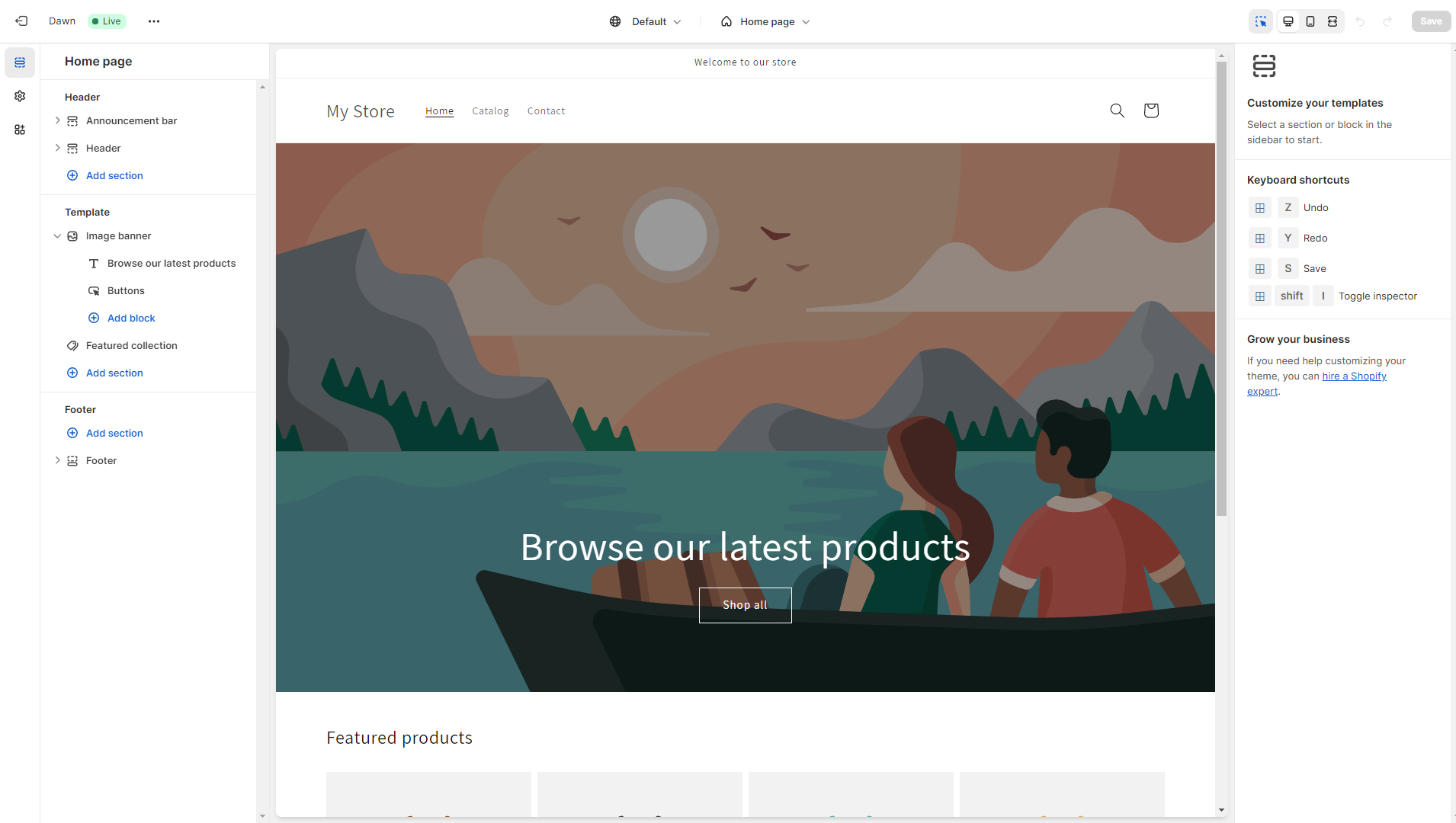
BlueHost’s editor, scoring 7.3, is designed for ease of use, catering to both beginners and advanced users. It offers a section based drag-and-drop interface, allowing users to easily add, remove, and customize elements on their website without needing to code. Users can choose from a wide range of templates and customize them to fit their brand, including adjusting layouts, colors, and fonts. Additionally, the editor provides access to stock photos, SEO tools, and responsive design features, ensuring websites look great on all devices and can rank well on search engines.
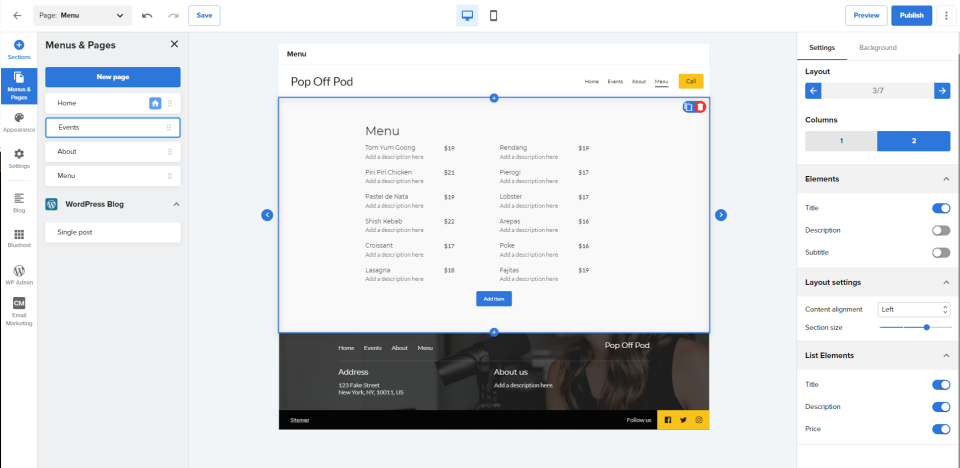
Mobile editor/app
 8.0
8.0
 5.0
5.0
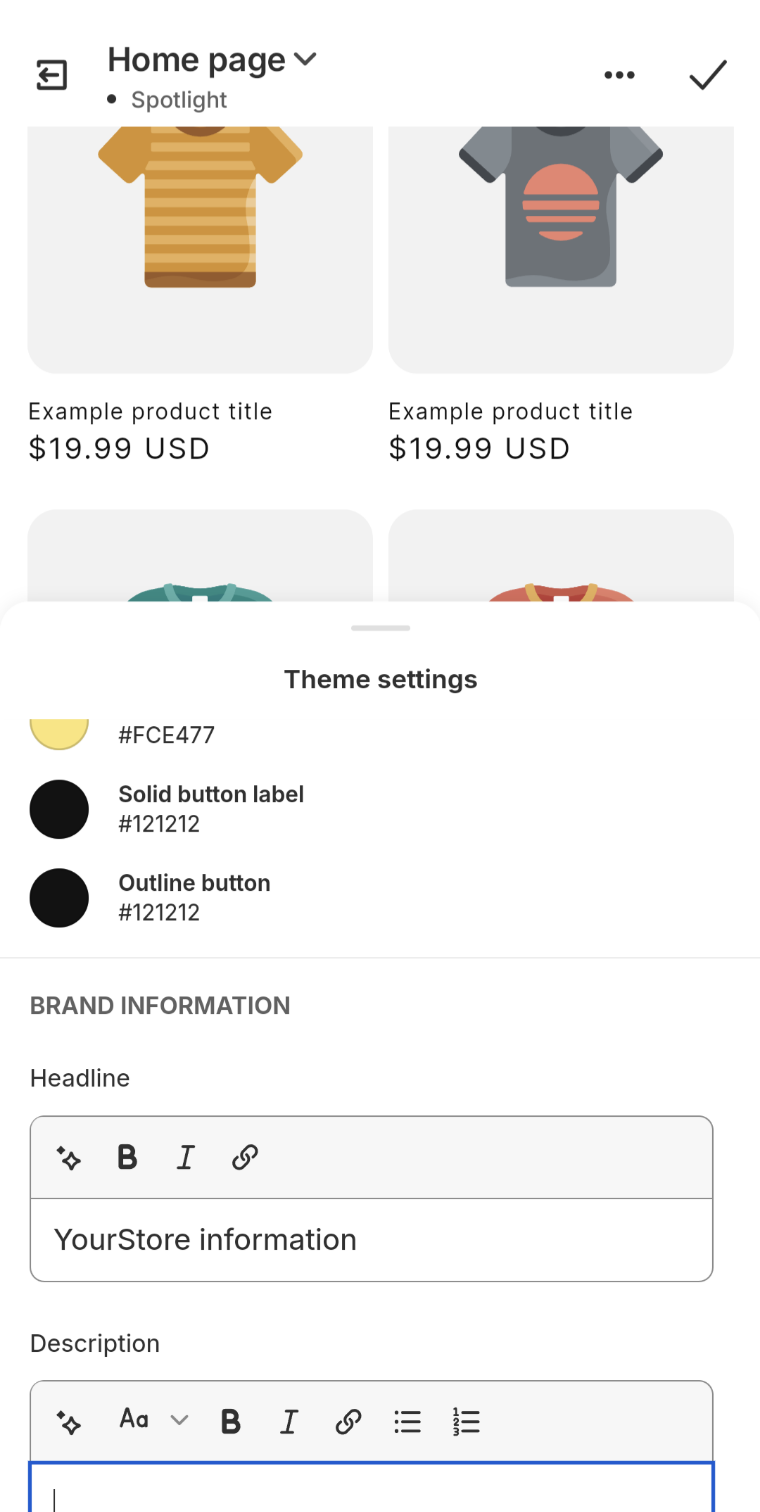
🏆
Winner: Shopify
. Both Shopify and BlueHost offer mobile editing capabilities, but they cater to different needs and skill levels. Shopify provides a dedicated mobile app that allows users to manage their online store from their mobile device. This feature enables the addition, removal, editing, and rearrangement of content on the store’s website, offering convenient on-the-go adjustments to the store’s appearance and layout.
On the other hand, BlueHost does not have a dedicated mobile app. However, users can edit their website on a mobile browser, albeit with some limitations. This might not provide the same level of convenience and functionality as a dedicated mobile app.
In summary, Shopify scores higher in this category due to its dedicated mobile app and the convenience it offers to users.
Product testing options
Product Testing OptionsAssesses the options for trying out platform features before commitment.Score Components:
- Trial quality (40%): Extent and usefulness of the trial or free version.
- Feature accessibility (30%): How many features are available to test.
- Trial duration (20%): Length of the trial period.
- Ease of transition (10%): Smoothness of moving from trial to paid plans.
 8.1
8.1
 6.2
6.2
Overall Result
:
Shopify Wins
. Shopify scores 8.1 in product testing options, while BlueHost scores 6.2. Shopify offers a 14-day free trial with access to all features, while BlueHost does not have a free or trial version but allows testing of premium features within a 30-day refundable period.

|

|
|
|---|---|---|
|
Free Plan |
No (14-day free trial) | No |
|
Trial Duration |
14 days | No trial version |
|
Testing Premium Features |
All features during free trial |
Possible within 30-day refundable period |
Price
PriceLooks at the cost-effectiveness and value for money of each platform.Score Components:
- Plan value (40%): What each pricing tier offers.
- Transparency and clarity (30%): Clearness of pricing structures.
- Flexibility of plans (20%): Range of options to suit different budgets.
- Hidden costs (10%): Additional expenses not included in the plan.
 8.2
8.2
 7.2
7.2
Shopify offers more value for its price compared to BlueHost, especially for larger-scale ecommerce operations. However, BlueHost offers a higher discount for annual subscriptions.

|

|
|
|---|---|---|
|
$10-$20 |
No offering at this amount. |
Basic ($15.99/month): Made for a simple website or blog, 1 website with 10GB SSD storage, Free CDN, Free Domain 1st year, Managed WordPress Hosting, Free SSL 1st year and Chat Support Value for price: 6.5 |
|
$20-$30 |
Shopify Basic ($29/month): Unlimited products, 2.9% + 30¢ card fee with Shopify payments, Extra 2% gateway fee without Shopify Payments, Abandoned cart recovery, Automated sales tax, Digital products, POS Integration, 2 staff accounts. Value for price: 8.0 |
Choice Plus ($27.99/month): Ideal for multiple sites needing storage, security, backups, 3 websites with 40GB SSD storage, Free CDN, Free Domain 1st year, Managed WordPress hosting, Free SSL, Free Domain privacy 1st year, Malware scanning, daily site backups are free for the 1st year with the purchase of a 12 or 36-month package. Otherwise, users are required to pay a one-time fee of $35.88 for backup services. Value for price: 7.5 |
|
$30-$35 |
No offering at this amount. |
Online Store ($32.99/month): Great for all online selling, built-in eCommerce tools, 3 websites with 40GB SSD storage, Free CDN, Free Domain 1st year, Managed WordPress hosting, Free Domain privacy 1st year, Malware Scanning, Exclusive Theme Store, Store Analytics, Unlimited products, Secure Payment options, Bookings & appointments, Shipping labels, product search and filtering, daily site backups are free for the 1st year with the purchase of a 12 or 36-month package. Otherwise, users are required to pay a one-time fee of $35.88 for backup services. Value for price: 8.5 |
|
$36-$154 |
Shopify Standard ($79/month): Lower card fees (2.6% + 30¢), Gift cards, Professional reports, 5 staff accounts. Value for price: 8.5 |
Pro ($39.95/month): Perfect for high traffic, advanced storage, security, 5 websites with 100GB SSD storage, Free CDN, Free Domain 1st year, Managed WordPress hosting, Free SSL, Free Domain privacy 1st year, Malware Scanning, daily site backups are free for the 1st year with the purchase of a 12 or 36-month package. Otherwise, users are required to pay a one-time fee of $35.88 for backup services. Value for Price: 9.0 |
|
$200+ |
Advanced Shopify ($299/month): Lowest card fees (2.49% + 30¢), Advanced report builder, Real-time carrier shipping, Up to 15 staff accounts Value for price: 8.8 |
No offering at this amount. |
location. As a result in rare cases the prices displayed here can differ from the ones you see on their
websites.
Hosting quality
Hosting
qualityExamines the reliability and performance of the hosting solutions.Score Components:
- Uptime (40%): Consistency and reliability of website availability.
- Speed (30%): Loading times and performance.
- Bandwidth and storage (20%): Sufficiency of resources provided.
- Data centers (10%): Quality and distribution of hosting infrastructure.
 9.0
9.0
 8.0
8.0
🏆
Winner: Shopify
Shopify’s proprietary cloud-based hosting, with a 99.99% uptime guarantee and 5 global data centers, is designed for high-traffic online stores. BlueHost, on the other hand, offers managed WordPress hosting with a 99.9% uptime guarantee and 6 data centers worldwide. While BlueHost’s hosting is versatile and integrates well with WordPress, Shopify’s e-commerce-focused hosting is more reliable, earning it a higher rating.

|

|
|
|---|---|---|
|
Do they offer hosting? |
Yes, included in all paid plans |
Yes, offers a range of hosting options |
|
Data Centers: |
5 globally: USA (Ashburn, Virginia; Santa Clara, California), Canada (Toronto, Ontario), Ireland (Dublin), and Singapore |
6 data centers: Orem and Provo, Shanghai, Mumbai and Hong Kong, London |
|
Type of hosting: |
Proprietary cloud-based hosting |
Managed WordPress Hosting |
|
Uptime: |
99.99% |
99.9% |
|
Uptime Guarantee: |
Yes, 99.99% |
Yes, 99.9% |
Website Speed Optimization
Website Speed OptimizationEvaluates optimization of website loading timesScore Components:
- PageSpeed Score (30%): Google’s score indicating performance optimization.
- Loading Time (30%): The average time until a website is fully interactive.
- Mobile Optimization (15%): Optimization effectiveness for mobile devices.
- Resource Optimization (15%): Optimizing images, scripts, and other heavy resources.
- CDN Usage (10%): Use of CDN to enhance speed across geolocations.
 7.8
7.8
 6.5
6.5
🏆 Winner: Shopify
Both Shopify and BlueHost place a high priority on website performance and page speed, with Shopify focusing on app efficiency and theme optimization, and BlueHost emphasizing CDN and server optimization. However, Shopify gets the edge when it comes to website speed optimization.

|

|
|
|---|---|---|
|
Focus |
App efficiency, Theme optimization |
CDN, Server Optimization |
|
Performance Tools |
Google Lighthouse, PageSpeed Insights |
Google PageSpeed Insights Integration |
|
Key Strategies |
App efficiency, Theme optimization |
CDN, Server Optimization |
|
Load Times |
Varies widely, dependent on optimization |
Varies widely, dependent on optimization |
|
Page Speed Scores Range |
Scores vary; influenced by apps, images |
Varies widely, depending on optimization |
|
Core Web Vitals Improvement |
Emphasis on LCP, FID, CLS improvements |
Emphasis on LCP, FID, CLS improvements |
Shopify’s approach to enhancing site speed includes app optimization by removing unneeded app code, conditionally loading apps, avoiding immediate pop-up displays, and incorporating app functionality directly into themes. This approach leverages Shopify’s fast servers and CDN network to boost load speed. Shopify also suggests utilizing Google AMP for faster mobile page loads, although with some design compromises. Analysis of three Shopify sites showed a range of Shopify speed scores from 14 to 75, Google PSI scores from 8 to 80, and load times varying from 10.6 seconds to 2.3 seconds. Continuous maintenance and optimization are essential for keeping Shopify stores fast.
BlueHost, on the other hand, places a strong emphasis on CDN and server optimization to enhance website speed. It integrates with Google PageSpeed Insights to provide a holistic view of website performance metrics. However, both load times and Page speed scores vary widely, depending on the optimization and website complexity. BlueHost also emphasizes on improving Core Web Vitals (LCP, FID, CLS), similar to Shopify. Despite these efforts, BlueHost’s website speed optimization score is lower than Shopify’s, making Shopify the winner in this category.
Get a head start on website creation with AI
Create a custom website tailored to your business needs 10X faster with 10Web AI Website Builder!
Plugins and integrations
Plugins and integrationsMeasures the range and effectiveness of additional plugins and integrations.Score Components:
- Variety of options (40%): Range of available add-ons.
- Integration smoothness (30%): Ease of integrating plugins into the site.
- Quality of plugins (20%): Functionality and reliability of the options.
- Custom integration capabilities (10%): Support for custom or third-party integrations.
 8.7
8.7
 9.1
9.1
🏆 Winner: BlueHost.
BlueHost scores 9.1, outperforming Shopify’s 8.7. BlueHost’s integration with WordPress opens up a vast ecosystem of plugins and extensions, expanding the functionality of the website builder beyond its base features. Shopify, while offering over 8,000 apps in its App Store, falls slightly short in comparison. However, Shopify’s plugins and integrations are more ecommerce-focused, making it a strong contender for online stores.
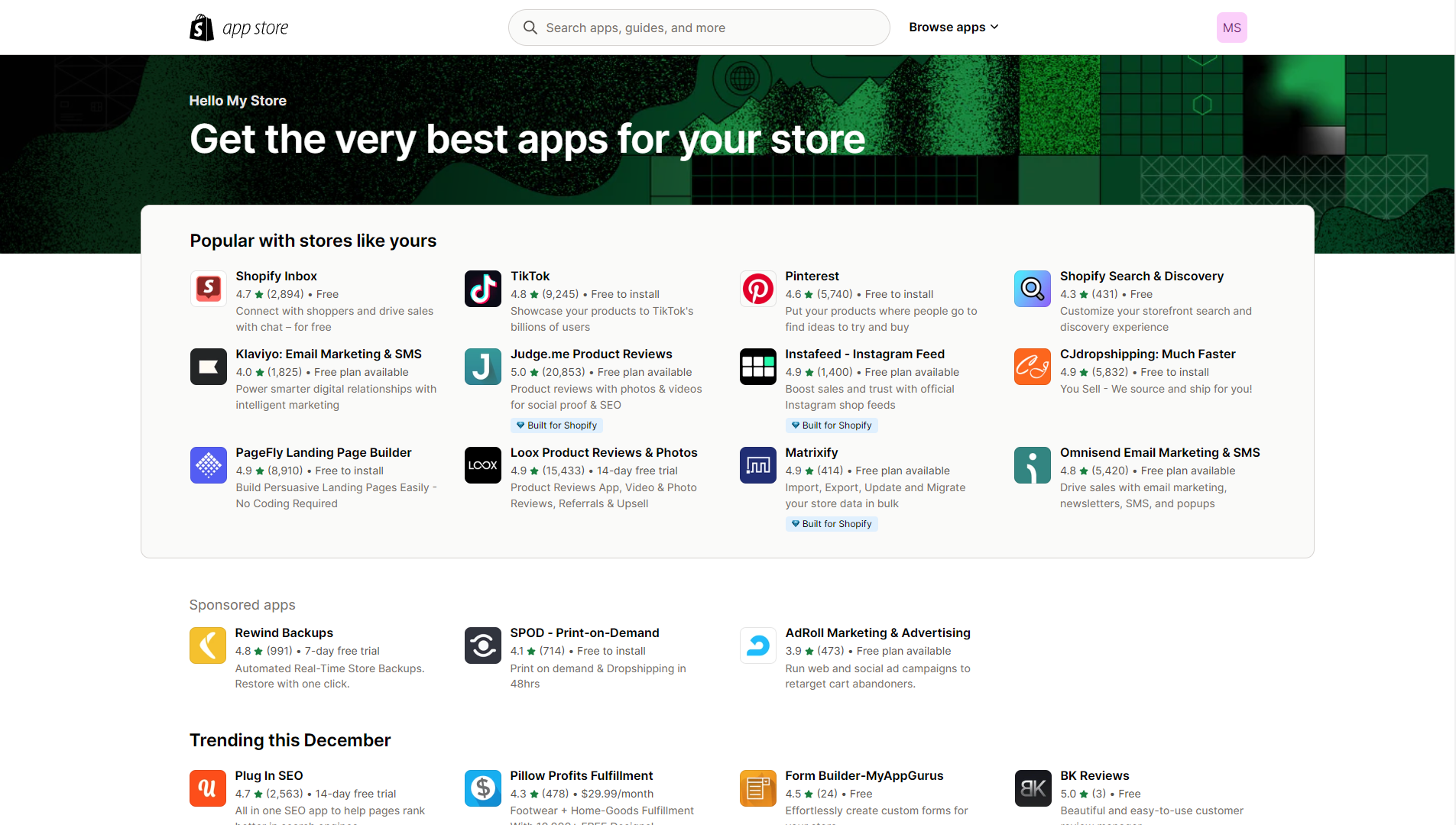
Marketing Features
Design FunctionalitiesRepresents how well each platform allows for creative design and customization of websites.Score Components:
- Template Variety (30%): Range and quality of design templates.
- Customization (30%): Flexibility and options for design alterations.
- User Interface (20%): Ease and intuitiveness of the design process.
- Responsiveness (10%): Adaptability to different devices and screen sizes.
- Innovation (10%): Unique design features and tools.
 8.8
8.8
 7.3
7.3
🏆
Overall Winner: Shopify
. Shopify stands out for its more advanced ecommerce-focused marketing tools, especially in analytics and ad campaign management. BlueHost, while offering a range of marketing features through WordPress integrations, is not as comprehensive or tailored for ecommerce as Shopify.

|

|
|
|---|---|---|
|
SEO Tools |
|
✓ (with WordPress plugins) |
|
Email Marketing |
|
✓ (with Creative Mail plugin) |
|
Blogging |
|
✓ (with WordPress blogging tools) |
|
Social Media Integration |
Advanced integration for selling directly on social platforms |
✓ (with WordPress plugins) |
|
Analytics and Reporting |
Detailed analytics for in-depth insights |
✓ (with Google Analytics integration) |
|
Ads and Promotions |
Google Ads integration; sophisticated ad campaign management |
✓ (with WordPress plugins) |
Customer Support
Customer supportEvaluates the quality and availability of support options.Score Components:
- Response time (40%): Speed of support responses.
- Support quality (30%): Effectiveness and helpfulness of the support.
- Availability (20%): Range of support channels (phone, chat, email).
- Resource richness (10%): Quality of self-help and educational materials.
 8.6
8.6
 7.6
7.6
🏆 Winner: Shopify
. Comparing Shopify vs BlueHost, Shopify takes the lead in this category with a customer support score of 8.6. Shopify offers 24/7 support through chat, email, and phone, ensuring that users can get help whenever they need it. The platform also provides clear tutorials, an extensive community forum, and a valuable marketing blog, making it easier for users to find solutions and grow their businesses. For enterprise-level businesses, Shopify offers dedicated account managers, priority support, and additional resources through its Shopify Plus program.
BlueHost, with a customer support score of 7.6, also provides 24/7 support through chat and phone for general inquiries. However, technical assistance is available only from 7 a.m. to midnight EST. BlueHost’s support includes specific hours for account verification, renewals, and cancellations, and it offers global accessibility with different contact numbers for US and international customers. While BlueHost is committed to providing round-the-clock assistance, it does not offer enterprise-level support like Shopify.
Security
SecurityLooks at the platforms’ security measures and data protection.Score Components:
- Data protection (40%): Safeguards for user and customer data.
- SSL and encryption (30%): Implementation of secure connections.
- Compliance (20%): Adherence to industry security standards.
- Regular updates (10%): Frequency of security updates and patches.
 9.0
9.0
 8.3
8.3
🏆
Winner: Shopify
. Shopify’s security measures are comprehensive, including secure infrastructure, encryption, and limited access. They comply with data privacy regulations, practice data minimization, and ensure user control and transparency. Additional security measures include two-factor authentication, regular audits, and a dedicated incident response team. Shopify’s security score is 9.0, which is higher than BlueHost’s score of 8.3.
BlueHost also prioritizes data protection and offers SSL certificates, regular backups, and additional security features like SiteLock for malware scanning. They comply with data protection regulations and are committed to privacy. However, their security score is slightly lower than Shopify’s, making Shopify the winner in this category.
AI Capabilities
AI capabilitiesMeasures the effectiveness of AI-driven features and tools.Score Components:
- Automation efficiency (40%): Impact of AI on streamlining processes.
- Personalization (30%): AI-driven customization for users or customers.
- AI-Assisted design (20%): Role of AI in website design and functionality.
- Data analysis (10%): Use of AI in interpreting user data and analytics.
 7.9
7.9
 1.5
1.5

|

|
|
|---|---|---|
|
Personalized Design |
Shopify AI Builder offers personalized design suggestions |
|
|
SEO Optimization |
AI-driven recommendations for better search engine visibility |
|
|
Customer Behavior Analysis |
Advanced analytics to understand customer preferences |
|
|
Sales Predictions |
AI-powered sales forecasting tools |
|
|
Inventory Management |
AI tools to assist in efficient inventory handling |
|
|
Content Generation |
AI assistance in creating and optimizing site content |
Supports integration with WordPress plugins for content generation |
🏆 Winner: Shopify
. Shopify, with a score of 7.9, utilizes AI mainly to enhance the ecommerce experience. Its AI features focus on customer behavior analysis, personalized shopping experiences, inventory management, and sales predictions.
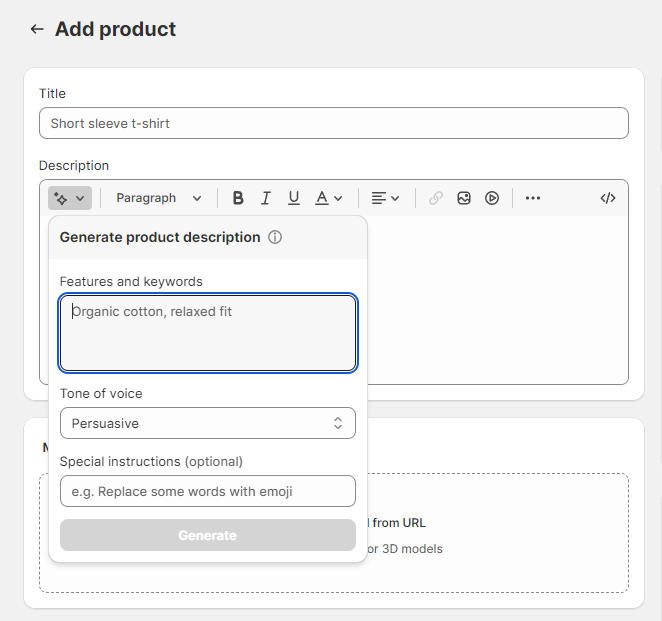
BlueHost, scoring only 1.5, does not have built-in AI capabilities. However, it supports integration with WordPress plugins, some of which may offer AI features. This flexibility can be beneficial for users who are familiar with WordPress and its ecosystem of plugins.
User Management
User ManagementAssesses the platforms’ capabilities in managing user roles, permissions, and accessibility.Score Components:
- Role Customization (40%): Flexibility in creating and defining user roles and
permissions. - Ease of Management (30%): User interface and tools for managing users.
- Access Control (20%): Effectiveness of access control measures for different user
levels. - Scalability (10%): Ability to manage a growing number of users efficiently.
 6.5
6.5
 4.4
4.4
🏆 Winner: Shopify
. Shopify and BlueHost both offer user management features, but Shopify provides a more detailed and structured approach.
-
Shopify enforces staff account limits based on plans, ranging from 2 to 15, with Shopify Plus offering unlimited
accounts. Collaborators with limited access are also an option. - BlueHost supports multi-user management, but does not provide specific details about the number of users or their roles and permissions.
Shopify User Roles and Access Levels:
| Role | Description | Access Highlights |
|---|---|---|
| Store Owner | Full control over store | Manage products, orders, discounts, payments, apps, settings. Create and manage staff accounts. |
| Staff | Configurable access by owner |
Add/edit products, manage orders, fulfill orders, manage customers, update content. Access level can be customized by the owner. |
| Collaborator | Limited access for external partners | View and manage specific sections like blog or product categories. Cannot access full store settings. |
Unfortunately, BlueHost does not provide detailed information about user roles and access levels.
Additional Features

|

|
|
|---|---|---|
|
SSL Certificate |
|
|
|
Custom Domain |
|
|
|
Free Custom Domain Included |
|
|
|
International Domains |
|
|
|
Mobile Responsive |
|
|
|
Page Speed |
|
|
|
Website Builder Mobile App |
|
|
|
Convert a Website To An App |
|
|
|
Website Analytics |
|
|
|
Multilingual Sites |
|
|
|
Multiple Users |
|
|
User Feedback
Shopify’s slightly higher rating on G2 Crowd can be largely attributed to its specialization in ecommerce. Its comprehensive features, ease of use, and robust customer support cater specifically to online businesses, leading to high user satisfaction among those seeking a dedicated ecommerce solution.
Users appreciate BlueHost for its comprehensive free offerings, including SSL, subdomains, and custom email, along with additional services like free domain registration and CDN. The platform’s intuitive interface and user-friendly website builder cater to both beginners and experienced developers. However, concerns arise regarding the significant price increase upon renewal, limited free website templates, and unresolved technical issues with poor customer support, hindering users’ ability to effectively manage their websites and businesses. Addressing these concerns could enhance overall user satisfaction with BlueHost.
The making of this blog
We followed a clear, step-by-step process to write and research this article.
FAQ
Which platform is better for ecommerce, Shopify or BlueHost?
Can I use Shopify or BlueHost for a non-ecommerce website?
How do Shopify and BlueHost compare in terms of ease of use?
Which platform offers better customer support, Shopify or BlueHost?
Are Shopify and BlueHost secure platforms for online businesses?
Which platform is more customizable, Shopify or BlueHost?










